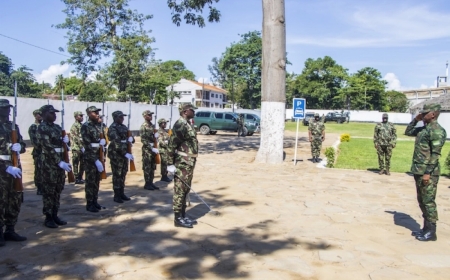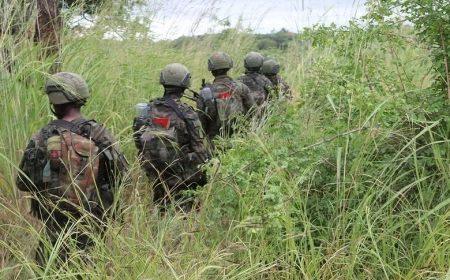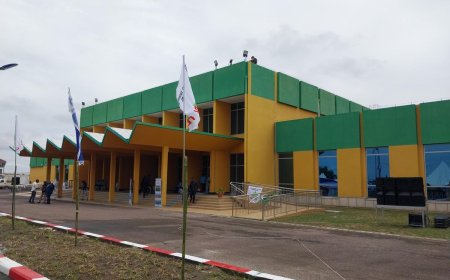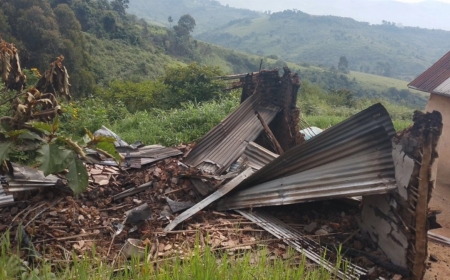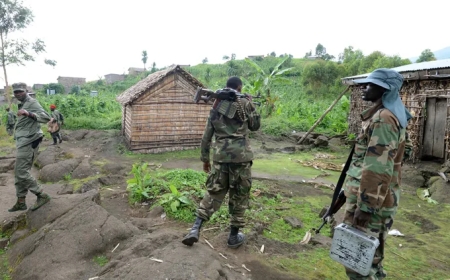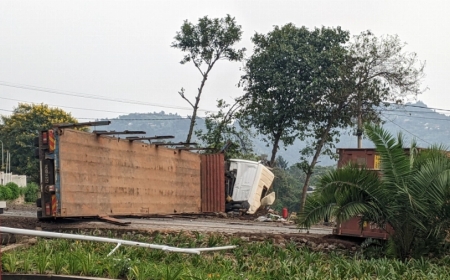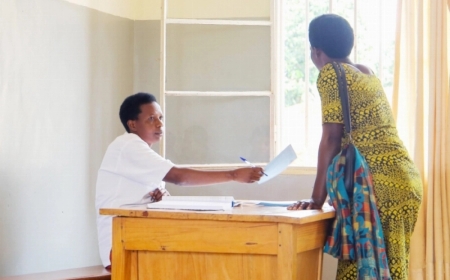Rwanda to set up $24m lab to detect, respond to zoonotic diseases

The government has begun construction of the National Veterinary Reference Laboratory, a high-security biosafety level three (BSL-3) facility that will strengthen the country’s capacity to detect and respond to animal and zoonotic diseases.
Zoonotic diseases are infectious illnesses that can spread between animals and humans.
BSL-3 laboratories are used to study infectious agents or toxins that may be transmitted through the air and cause potentially lethal infections.
The groundbreaking ceremony for the laboratory, which will enhance diagnostic capacity for animal diseases with pandemic potential, took place on 18 November at the Rubirizi research station in Kigali.
Through the Strengthening Pandemic Prevention and Response through the One Health Approach in Rwanda (SPPROHRW) project, Rwanda secured a grant of $24.9 million.

In 2024, a new strain of mpox was detected in the Democratic Republic of Congo and began spreading swiftly across international borders, including Rwanda.
The World Health Organization (WHO) declared a Public Health Emergency of International Concern, highlighting the growing threat posed by the outbreak.
The Pandemic Fund acted quickly, fast-tracking $128.9 million to 10 countries affected by the disease, including Rwanda’s $24.9 million grant. In line with the Fund’s priorities, Rwanda’s project will focus on surveillance, laboratory systems, and workforce development.

Construction of Rwanda’s laboratory, excluding equipment, will cost $3 million.
Mark Cyubahiro Bagabe, the Minister of Agriculture and Animal Resources, said the project will improve Rwanda’s pandemic preparedness.
“The Rwanda National Veterinary Reference Laboratory will supercharge our national ability and capacity to prevent, detect and respond to disease threats before they spread, especially those that can pass between animals and humans and pose serious risks to both public health and the national economy,” he explained.
He noted that the current laboratory dates back nearly four decades and is no longer fit for purpose.
“The facility is replacing the old one established in 1983, nearly 40 years ago,” he said, adding that procurement has already been launched for the construction.
Priya Basu, the inaugural Executive Head of the Pandemic Fund at the World Bank, which funded the facility’s establishment, said the laboratory would also help address antimicrobial resistance.
The Pandemic Fund, established in 2022, finances critical investments to strengthen pandemic prevention, preparedness, and response capacities at national, regional, and global levels, with a focus on low- and middle-income countries.
“Rwanda’s pathway towards ISO 17025 accreditation will further position this laboratory as a trusted regional resource for cross-border disease surveillance and harmonised laboratory practice,” she said.
Sabin Nsanzimana, Minister of Health and co-chair of the Pandemic Fund Board, said that past crises such as the Covid-19 pandemic, mpox, and Marburg underscored Rwanda’s need for an integrated surveillance system.
“We were sending some samples abroad for testing. The results were costly and delayed, and such delays could escalate the spread of diseases. This issue will be addressed by the new facility. The laboratory will also boost health research,” he said.
He stressed that the facility will have a global impact.
“This disease detection facility, this investment we are making here, is not just for Rwanda. It is for humanity as a whole.”
Experts have supported the One Health approach, emphasising that animal, human, and environmental health are inseparable.
One Health is an integrated, unifying approach that aims to sustainably balance and optimise the health of people, animals, and ecosystems.
It recognises that the health of humans, domestic and wild animals, plants, and the wider environment (including ecosystems) are closely linked and interdependent.
Rwanda’s exemplary response to recent health emergencies, including achieving the lowest case fatality rate worldwide during the September 2024 Marburg outbreak, positions the country as a global model for pandemic preparedness.
The funded project aims to enhance surveillance and early warning systems.
Activities will focus on scaling up indicator- and event-based surveillance across the human and animal health sectors, boosting antimicrobial resistance surveillance, and strengthening monitoring through innovative technologies and complementary methods.
It will also involve constructing and upgrading biosafety-level laboratories for both human and animal health, procuring the necessary equipment and reagents, instituting a Quality Management System, and supporting laboratory accreditation.






